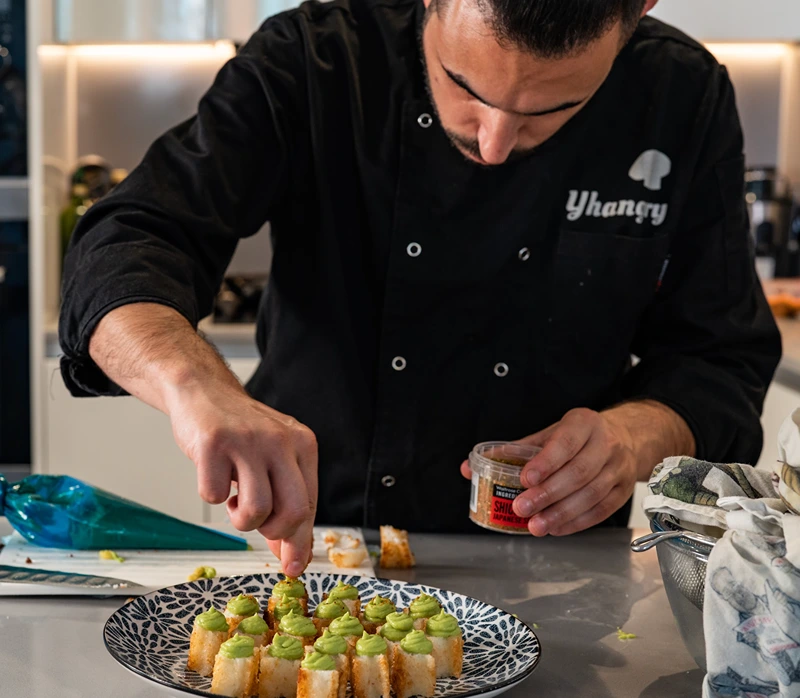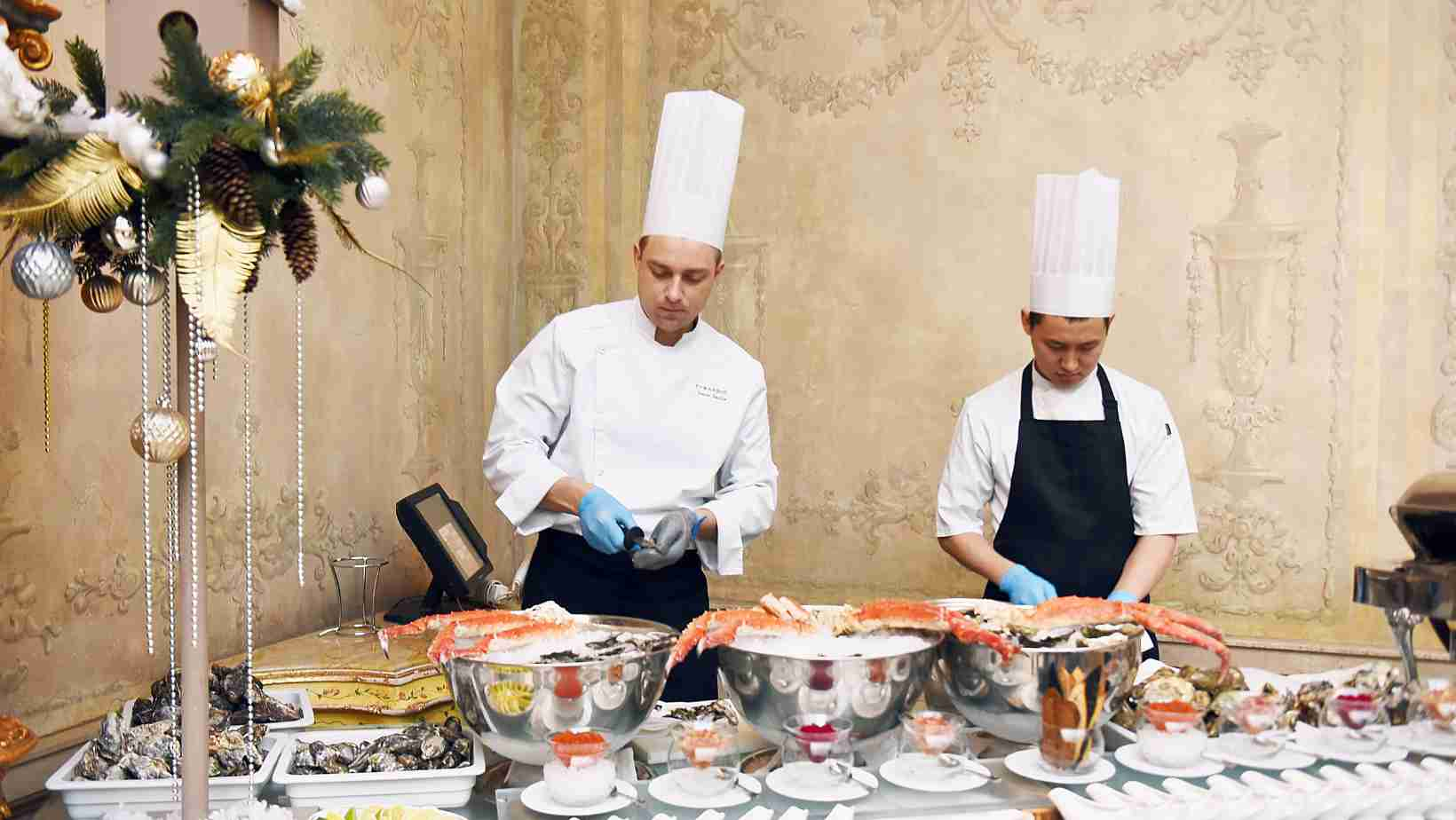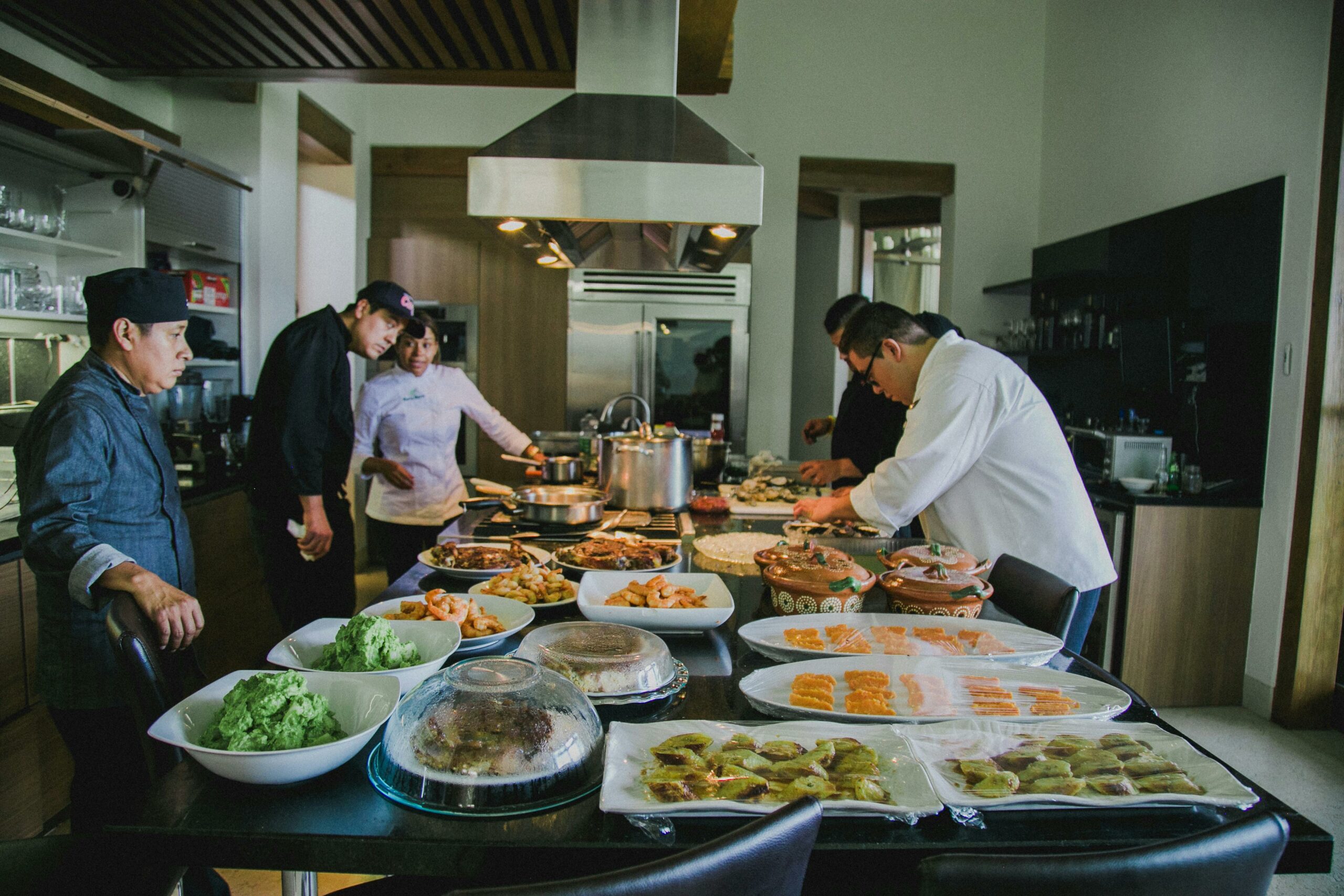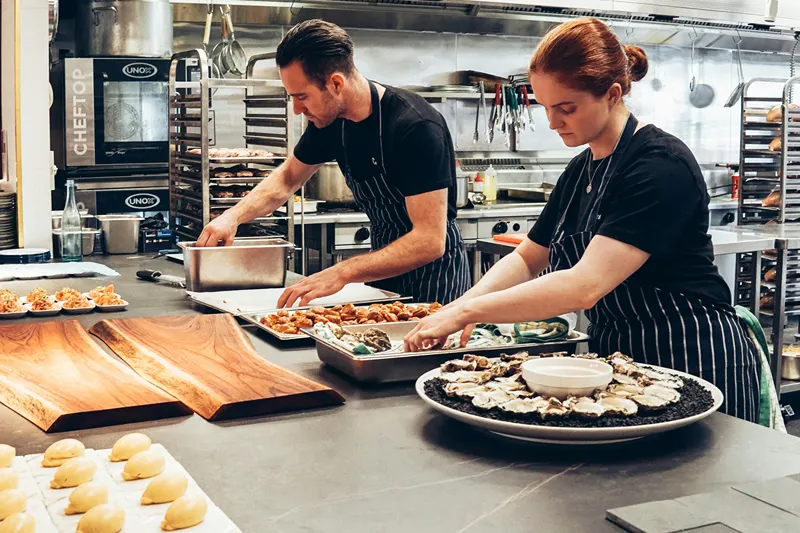Your Guide to Basic Private Chef Qualifications in the UK
What Does It Mean to Be a Private Chef?
A private chef offers a highly personalised culinary experience, crafting meals that cater to their clients’ unique tastes and dietary needs. While personal chefs typically prepare homestyle meals for multiple clients, private chefs are dedicated to crafting gourmet, restaurant-quality dining experiences. Unlike restaurant chefs, who cater to a wide audience, private chefs focus exclusively on delivering bespoke menus designed to align with individual preferences.
Their role goes beyond cooking to include planning menus, sourcing ingredients, and sometimes serving meals, ensuring every detail reflects the client’s preferences. Whether accommodating gluten-free diets or designing vegan menus, their work requires meticulous attention to detail and adaptability.
Private chefs are typically employed in one of two ways: full-time or as freelancers. Full-time private chefs often live on-site with a single household, preparing daily meals, snacks, and catering for events. They may also travel with their clients, providing consistency and convenience wherever needed. This setup fosters a deep understanding of the client’s tastes and lifestyle.
Freelance private chefs, on the other hand, work for multiple clients, offering flexible services for events, weekly meal prep, or short-term engagements. This flexibility enables them to adapt to a wide range of client preferences.
What Qualifications Do You Need To Be a Private Chef?
To excel as a private chef, culinary skills alone aren’t enough—you’ll need the right chef qualifications in the UK to meet the demands of discerning clients. These credentials are the most basic steps to becoming a private chef that not only sharpens your skills but also cements your credibility in a competitive field.
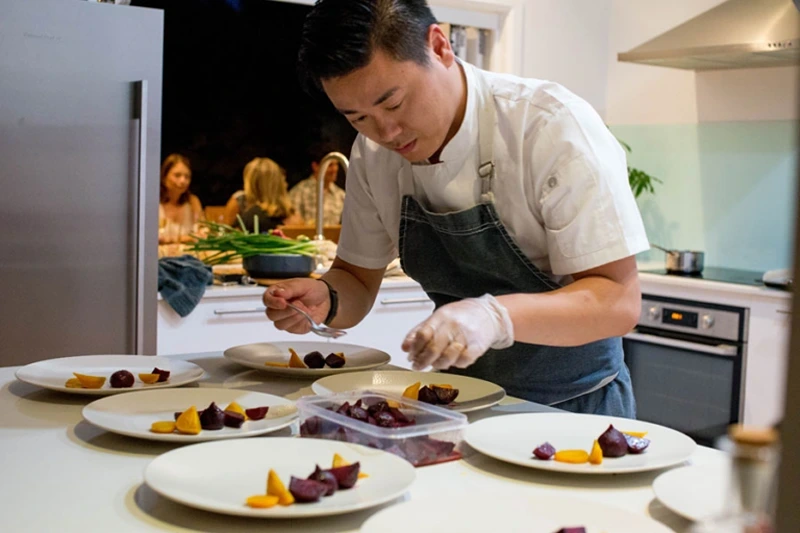
Foundational Training in Culinary Skills
A strong culinary foundation is crucial for excelling in private cheffing, where clients expect restaurant-quality meals tailored to their unique tastes. While formal private chef training is not mandatory, it significantly enhances your credibility and marketability. Without it, building a reliable client base can be challenging, as many clients seek chefs with proven expertise in professional cooking techniques and menu creation.
If you’re wondering how to get into private cheffing, there are several effective pathways. Reputable culinary schools such as Le Cordon Bleu London and Westminster Kingsway College provide intensive training in professional techniques, from classic French cooking to modern cuisine. Alternatively, a private chef apprenticeship with a high-end restaurant offers hands-on experience under seasoned chefs, allowing you to master practical skills while gaining insights into the demands of high-profile clients. Both paths help fulfil critical private chef education requirements.
Essential skills to develop include precision in food preparation, designing menus for diverse dietary needs, mastery of specialised cuisines, and delivering exceptional presentation. These competencies, honed through structured training or apprenticeships, are key to thriving in the competitive world of private cheffing, where every detail matters.
Level 2 Food Safety Certificate
With your culinary foundation established, the next step is ensuring you meet essential food safety standards—an absolute must for private chefs. You might still be asking, “What qualifications do I need to be a chef operating privately?” Alongside your cooking skills, earning a Level 2 Food Safety Certificate is critical. This certification ensures you can handle and prepare food safely, meeting legal requirements while building trust with discerning clients who value professionalism.
This chef training certificate covers vital topics like hygiene protocols, proper food storage, handling practices, and preventing cross-contamination. These are essential skills for working in a private kitchen, where safety and quality go hand in hand.
Completing this part of your private chef certification is straightforward. Providers like the Chartered Institute of Environmental Health (CIEH) offer the course online or in person, typically in a single day, costing just £50–£100.
Registration with HMRC as a Sole Trader
Once you’ve secured the necessary private chef qualifications, the next step in how to become a private chef in the UK is establishing your business legally. If you’re planning to work independently, registering with HMRC as a sole trader is essential. This legal requirement ensures you can operate as a self-employed professional, report your income accurately, and meet tax obligations.
The process of registering as a sole trader is straightforward. Start by creating an HMRC account through the government website. You’ll receive a Unique Taxpayer Reference (UTR), which you’ll use for all tax-related matters. Each year, you’ll need to file a self-assessment tax return to declare your earnings and calculate any taxes owed.
Being a sole trader offers simplicity and control over your business finances. However, it’s crucial to maintain detailed financial records, including income, expenses, and receipts, for tax submissions and effective cash flow management.
Public Liability Insurance
Once your business is legally registered, the next critical step in how to start as a private chef is securing Public Liability Insurance. Alongside the essential qualifications needed to become a private chef, this insurance is vital for protecting you against potential claims, such as accidental damage to a client’s property or food-related health issues. Being aware of the potential pitfalls ensures both financial security and professional growth as you learn how to be a private chef and establish a professional reputation.
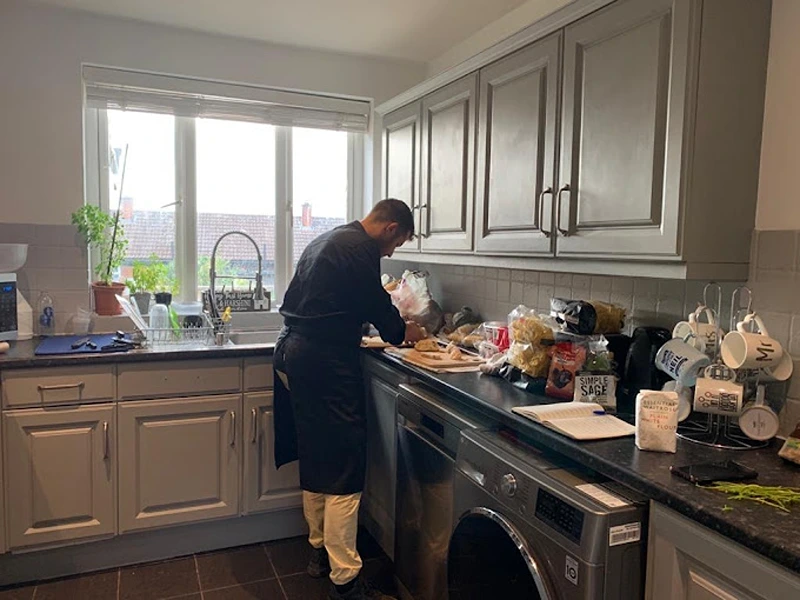
Reputable providers like Hiscox and Simply Business offer tailored policies for private chefs. These policies cover common risks and can be customised to include additional protection as your business grows, such as for travel, larger events, or higher-value clients.
Whether you're hosting a special celebration dinner, looking for a chef during your holiday or weekly meal prep, we will match you to the perfect chefs.
Start hereTurn Your Chef Qualifications into High-Paying Private Chef Jobs!
Now that you’ve covered the basic requirements, you might be wondering how to get hired as a private chef and attract high-paying clients—but the journey is just getting started. Finding clients, especially consistently, can demand significant time and energy. How do you market yourself and build a personal brand that stands out?
And once you do, securing timely payments can become a hassle, with delays or disputes adding unnecessary stress. Unexpected cancellations, too, can disrupt your schedule and impact your income, making it challenging to plan your workload.
That’s where yhangry steps in. We handle the marketing for you, offering free customer leads, insurance coverage, secure payments, and protection against last-minute cancellations. With a steady flow of clients, you control your rates and travel radius, allowing you to focus on your craft while enjoying greater professional fulfilment and financial security. So, what are you waiting for? Sign up today and take the next step in your career!
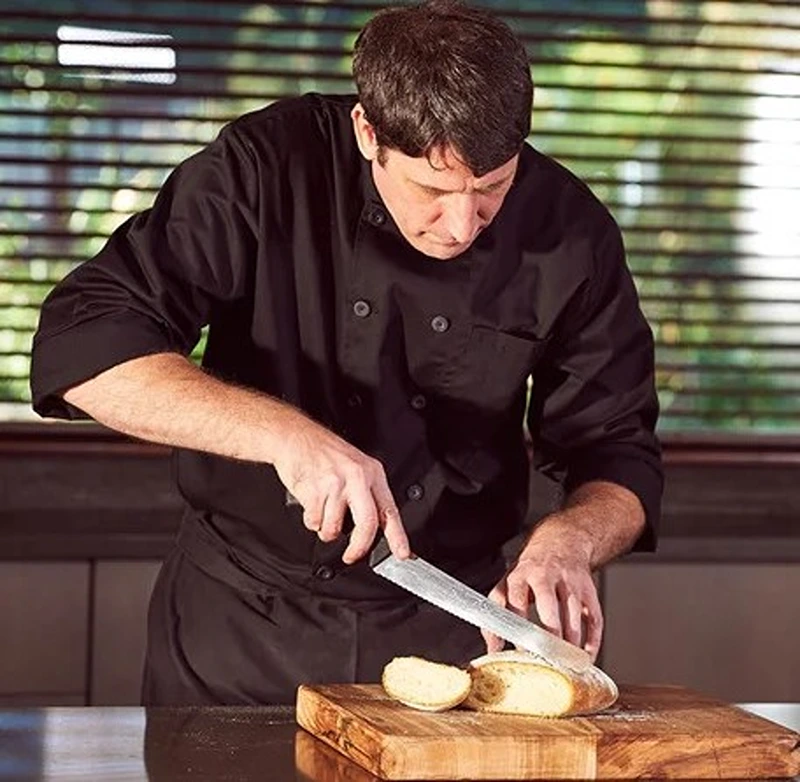
- How to charge as a private chef?
-
As a private chef, you can charge using a set hourly rate, a rate per person, or establish a minimum spend for bookings, depending on the service you offer. You can fix your own rates based on factors like your experience, menu complexity, and client location.
- How to become a private chef for celebrities?
-
To become a full-time at-home private chef for celebrities, focus on building a strong culinary foundation, gaining experience in luxury dining, and networking with high-profile clients or agencies. Freelance private chefs can leverage platforms like yhangry to connect with celebrity clients, offering bespoke services while showcasing their expertise through exceptional reviews and tailored menus.
- How many hours does a private chef work?
-
Private chefs typically work 40–60 hours per week if employed full-time, including evenings, weekends, and holidays during events or special occasions. Freelance private chefs have more flexible schedules, working 20–30 hours per week on average, depending on client demands.
- How to start a private chef business?
-
To start a private chef business, obtain culinary training, a Level 2 Food Safety Certificate, and register as a sole trader with HMRC. Secure public liability insurance, a DBS certificate for client trust, and register with your local council for food safety compliance.
